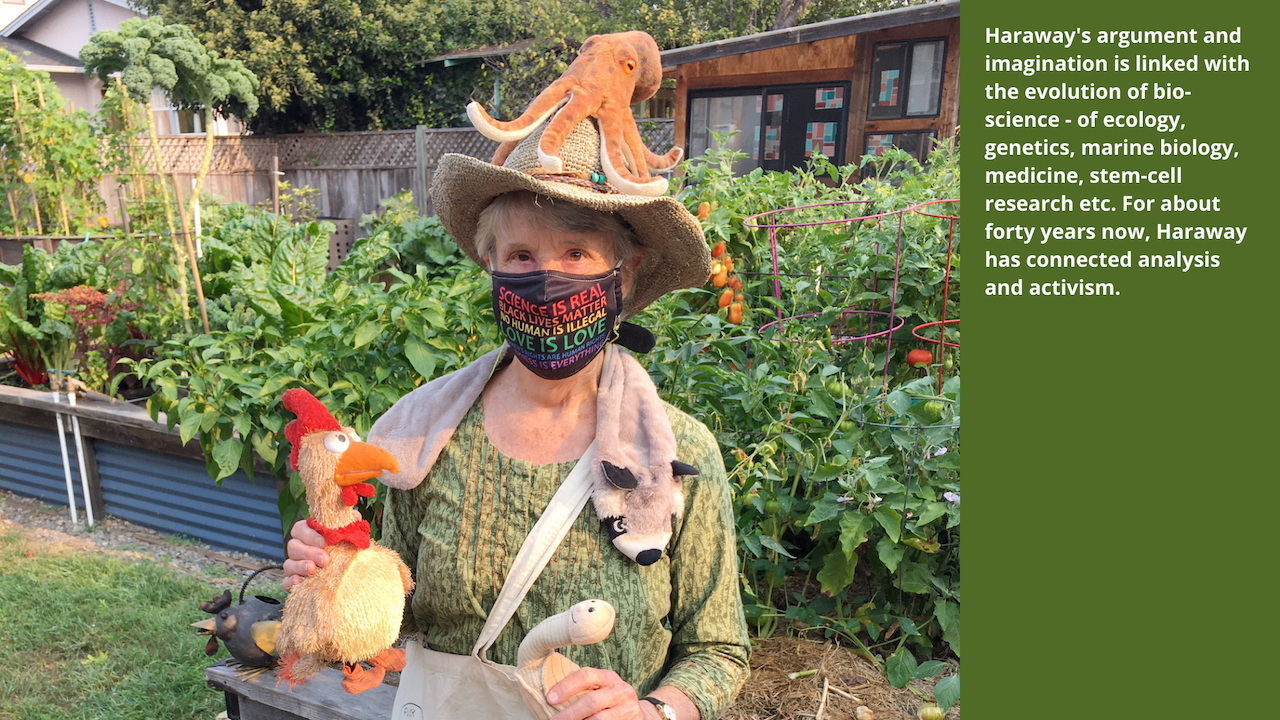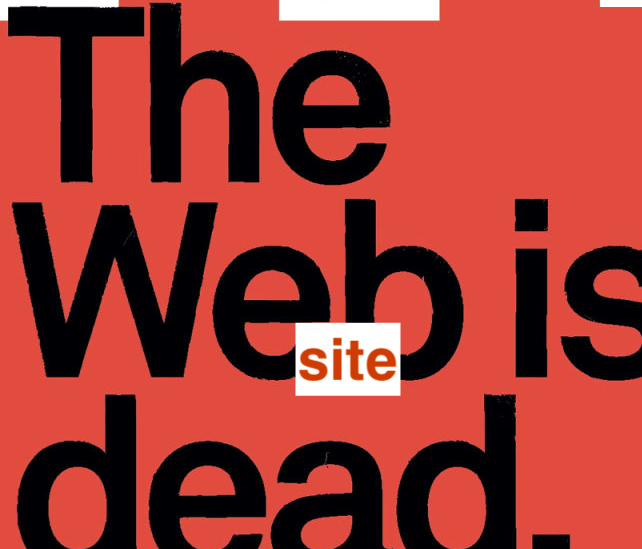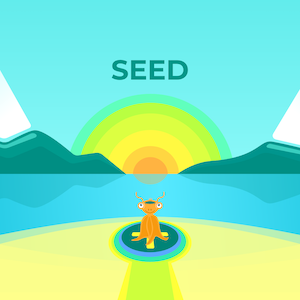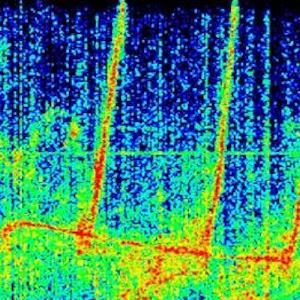Definition
In her book Staying With The Trouble (2017), Donna Haraway insists on "stirring up" and "confronting troubled times". She compels us to feel the indigenous people's kinship to natural systems (rivers, mountains, forests etc). She describes how the Anthropocene has rapidly run off the rails. "We live in such mixed up times... made of so much unnecessarily killing... the ongoing mass extinction and severely impoverished ecosystems... society constantly fluctuating between anxiety, pain, speculation and momentary joy". Haraway insists that by making new kin, new relationships, "new trouble" and "clearing away past myths", we stand a chance to make way for a future, which will not be based on "salvation, magic or technological progress". She eschews, gradually divesting from the current epoch (the Anthropocene), moving into what she conceptualizes as the "Chthulucene". The book vividly describes a future landscape of unforeseen bio-mutation, not so far away, where the human and non-human are inextricably linked in "tentacular" forms and practices. "I imagine those replete with tentacles, feelers, digits, cords, whip-tales, spider legs and unruly hair... Multi-species with the ability to share ecosystems in harmony.. very different from the sky gazing Homo Sapiens 10,000 years ago...". Oh! sounds like another Hollywood 'alien mutation' meets 70s Sci-Fi? Actually far from it.
That kinship which gradually removes the Homo Sapien from it's dominant position. She slams at the old farcical myths and idiotic notions of glory that we have held on for centuries. Haraway unboxes her ideas, with the objective to improve our relationship with the planet, at micro and macro levels. Haraway is no moralist. She is replacing 'human relations' with 'kin' which arguably brings about a transformation. A revolution of our hierarchies and priorities. The very definition of what amounts to a family and why kinship goes way beyond blood, race and language relationships. Why not care as much about a Mudskipper as you do about your niece or a Blue Whale or a Panda? Sounds too far out?! Perhaps we are struck down by our own limitations, unable to re-imagine and re-act.
Haraway's argument and imagination is linked to the evolution of bio-science - made of ecology, genetics, marine biology, medicine, stem-cell research etc. For about forty years now, Haraway has connected analysis and activism. Staying With The Trouble (2017) transcends disciplinary boundaries. Traversing biology, science studies, art history and philosophy with fiction, political activism and new Etymologies. She insists that we learn to tell new stories, that strengthen ecological response-ability and individual resilience. She warns with duress, that a world characterized by ongoing environmental irresponsibility and irrevocable faith in technology, is both "appallingly murderous and leading us even closer to ecocide...".
'Staying With The Trouble'































0 -